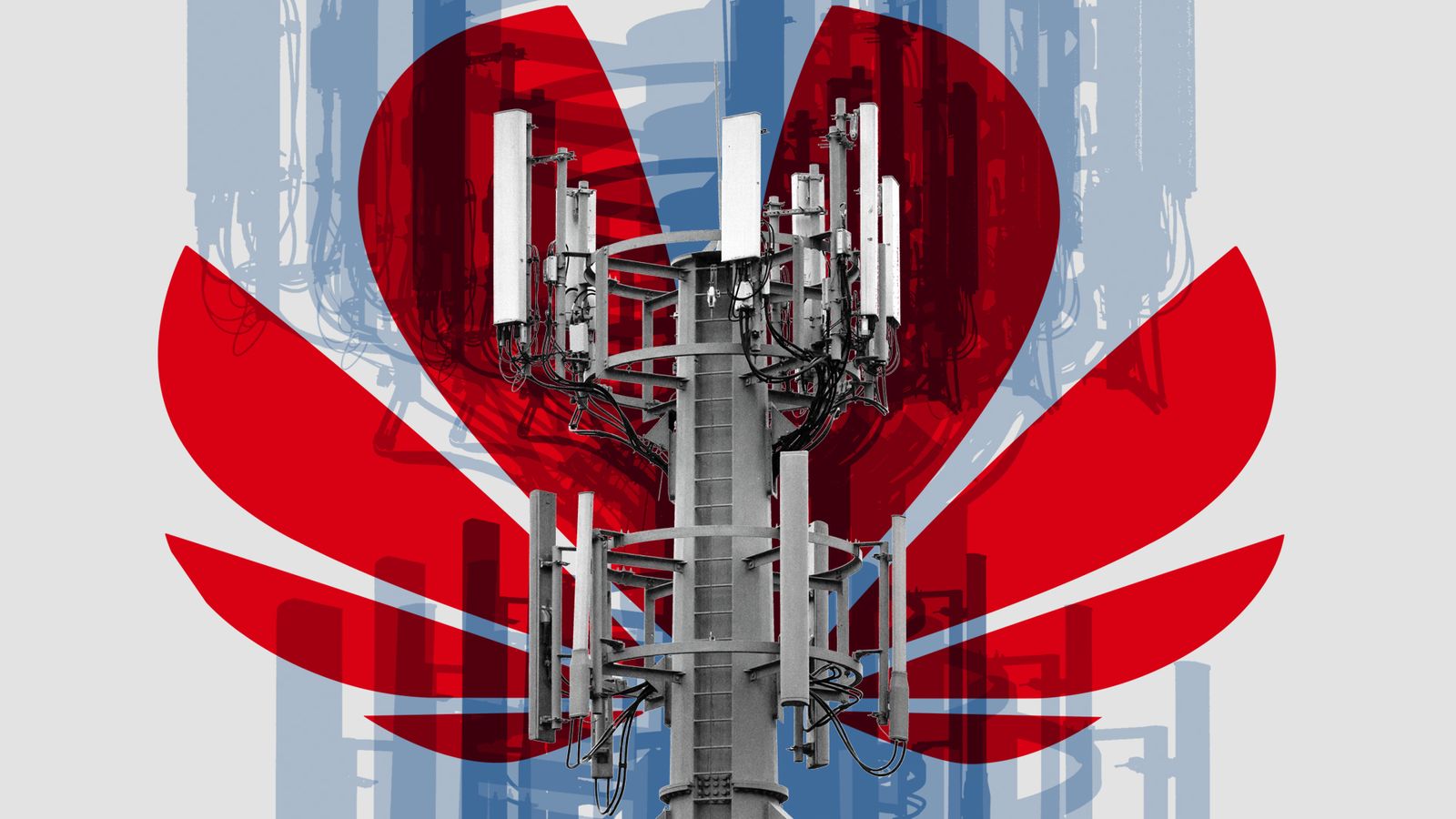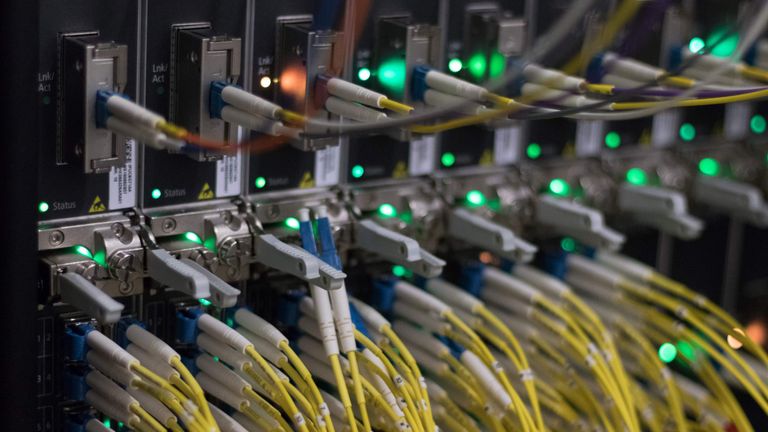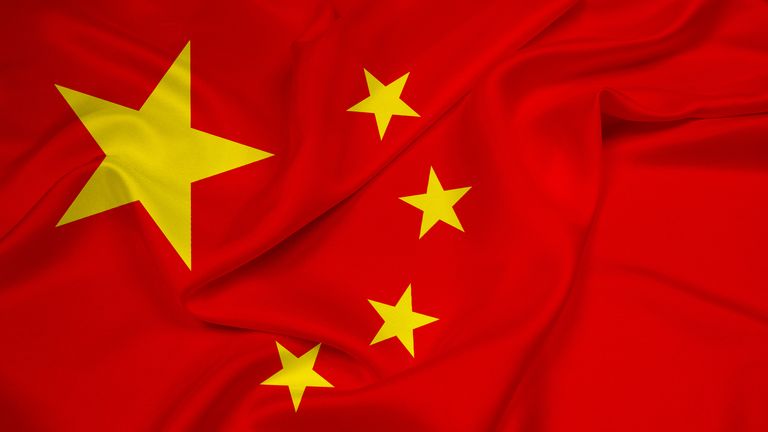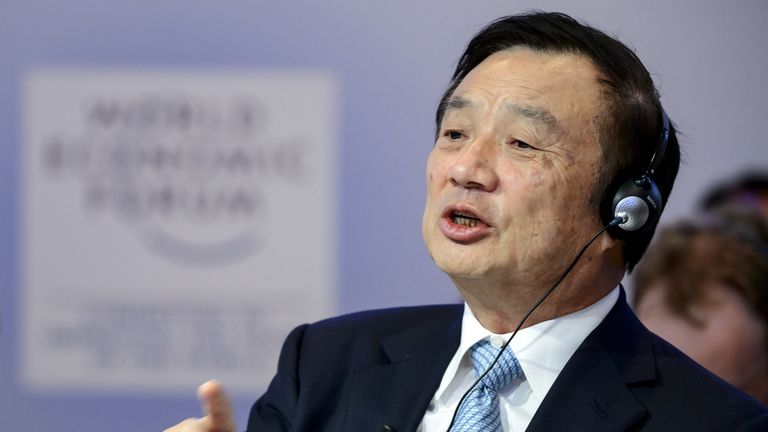Huawei is a Chinese business which has grown to become the world’s largest telecommunications equipment vendor.
This equipment is critical to how the internet functions. It occupies every step of the network chain between our laptops and phones through to the data centres hosting the content we want to access.
Although it sells consumer devices such as laptops and phones too, Huawei’s equipment is especially prominent in the parts of the network closer to the data centres, and it’s this equipment which has been raising concerns.
The extensive debate about these concerns branches across a number of topics, from Beijing’s aggressive espionage activities through to the ongoing trade war between China and the United States, something which Huawei argues is actually motivating the actions against the company.
After Boris Johnson ordered all Huawei technology to be stripped out of the UK’s 5G network by 2027, Sky News looks at the issues facing the company and the security fears.
New restrictions on Huawei
Huawei designs and manufactures the kit that controls how and where data is sent – network switches, gateways, routers, and bridges. These core infrastructure devices touch everything traversing the internet and are critical to it functioning properly.
It also makes radio equipment such as antennas which live at the very edge of the telecommunications infrastructure, and are less critical to the network, although part of the generational advantage of 5G is the increasing amount of critical functionality which takes place at the edges.
Earlier this year officials in the UK granted the company restricted access to build “non-core” infrastructure within Britain’s 5G network, with the proviso that it doesn’t hold more than 35% of the market share – while blocking it from involvement in the most sensitive areas of the network.
This decision was based on a judgement by the National Cyber Security Centre that it would be able to manage any issues posed by the “high-risk vendor” as it is officially designated.
However the NCSC was forced to reassess its previous decision that it was able to manage the risks posed by the company’s equipment following new restrictions on Huawei announced by the US in May which would prevent computer chips based on American designs from being used in any of its equipment.
The deeply damaging measures threaten to cut off Huawei’s supply of semiconductors used across its product lines, from radio base stations to servers and smartphones.
This could lead to the company beginning to use “untrusted” replacement technologies within these products, increasing the amount of work which would be needed to manage the risk these products introduced to the network.
Ban could cause “blackouts”
Last week MPs were warned that there could be mobile blackouts across the UK if the government forced phone companies to strip Huawei out of their networks.
BT and Vodafone executives warned parliament that if the government instructed them to completely remove Huawei’s equipment from their networks suddenly, it would cost billions of pounds and lead to customers losing phone signal for several days.
Andrea Dona, the head of networks for Vodafone UK, said a “five-year transition plan” would be the minimum that the company could work with to avoid this impact on customers – a phased period during which the company could slowly replace Huawei equipment with alternatives.
BT’s chief technology and information officer, Howard Watson said it was “logically impossible” to remove all of the Huawei equipment from the company’s networks within a three year period.
“That would literally mean blackouts for customers on 4G and 2G, as well as 5G, throughout the country as we were to build that in. So we would definitely not recommend that we go down that route,” Mr Watson added.
How are other countries acting?
Other than the UK, two nations in the Five Eyes intelligence alliance – the US and Australia – have effectively prohibited the installation of any Huawei equipment as part of the next generation of telecommunications equipment.
New Zealand has not explicitly prohibited the use of the company’s equipment in its networks, however it has also not given any of the country’s network operators permission to use Huawei equipment – and in 2018 prevented one from doing so.
Canada is also yet to make a ruling amid an ongoing extradition case against the company’s chief financial officer, Meng Wanzhou – daughter of the company’s founder Ren Zhengfei – who was arrested in the country in connection with fraud allegations tied to sanctions on equipment the company provided to Iran.
The breach of sanctions is not connected to the security of the company’s equipment more generally.
Elsewhere, nations including India and Germany have expressed their concerns about including Huawei equipment as they upgrade telecommunications infrastructure for 5G.
The US has made extensive lobbying efforts against the company. President Donald Trump called Mr Johnson ahead of the initial decision on what role Huawei should be permitted to play within the UK’s 5G infrastructure to reiterate that, were the UK to grant the Chinese company any access at all, Washington would reassess its intelligence sharing relationship with the UK.
Sir Andrew Parker, the head of MI5, said he did not expect the UK’s relationship with America to suffer if Britain decided to give its domestic network operators the green light to use Huawei equipment, and no immediate reassessment was announced following the UK’s initial decision.
Huawei has accused the US of using concerns about national security to increase pressure on China as part of the ongoing trade talks between the two countries.
Connections to the Chinese military
In the face of this criticism and suggestions of impropriety, the company has consistently pointed out that there has never been any evidence suggesting its equipment is more faulty or suspicious than that of its competitors.
Huawei was founded in China in 1987 by Ren Zhengfei, formerly an engineer in the People’s Liberation Army. His connections to the military and to the Communist Party, alongside those of senior Huawei executives, have been cited as a security concern for foreign customers.
Alongside this, even if there is no evidence of bad action from the company on behalf of the Chinese state, Western security officials have been especially wary of China’s foreign policy, including its alleged ambitions to use business ties in foreign countries as elements of warfare.
Much of this wariness can trace its origin to 1999, when two Chinese Air Force colonels published a book of military strategy which was translated into English as Unrestricted Warfare and which described the strategy needed to win a conflict with the US.
It formulated the idea that non-military means can be used to challenge a rival nation, including attacking telecommunications networks, or what might be called cyber war.
Academics including Ofer Fridman, an expert in modern warfare, have suggested that the translated title is more incendiary than the original Chinese phrase – which could be read “warfare beyond boundaries” – but the assumed sentiment has influenced Western thought about China.
Economic warfare also comprised a section of the book, and last December, the Five Eyes alliance and others collectively condemned the Chinese state for its active cyber espionage activities, declaring that it was engaging in the hostile theft of intellectual property.
Spying or worse
Huawei’s networking equipment could potentially facilitate espionage, although it has not been detected doing so, and any evidence that Huawei equipment manipulated or monitored the data it routed would lead to an immediate response from all companies using it. It would have to be a single-time action.
This has prompted the concern that the equipment could be made to not function by the company, or the Chinese government, to essentially take down telecommunications infrastructure during a time of international crisis.
Such a move would inevitably compound the crisis and potentially have a critically damaging impact on the West’s ability to respond to Beijing’s action.
As described by the Australian government, Huawei was “likely to be subject to extrajudicial directions from a foreign government” and as such it would not be capable of resisting directions from Beijing to include a capacity to bring down the network or to manipulate the traffic its devices handled.
The company’s exposure to these directions are acknowledged in the UK where the NCSC has said that it has assumed, as part of its security evaluation, that the Chinese state “could compel anyone in China to do anything (which they’ve now codified in their National Intelligence Law)” and would indeed “carry out cyber attacks against the UK at some point (which we’ve recently publicly confirmed)”.
But the lack of evidence of Huawei’s role in conducting espionage on behalf of Beijing by using implants within its own equipment is significant.
Huawei employees have been caught conducting corporate espionage in the US, in one incident attempting to steal the intellectual property of T-Mobile’s phone-testing robot according to court documents, this incident was not tied to any activities facilitating Chinese government spying.
Matthew Brazil, a former US Army intelligence officer and diplomat who was based in China for eight years, and is the co-author of a US Naval Institute book on Chinese Communist Espionage, told Sky News:
“The concerns about Huawei I think are well-founded because logically speaking it’s almost impossible for people who study the Chinese Communist Party to imagine that Huawei is totally independent.
“Huawei does a lot of business for the Chinese government, Huawei has a powerful Communist Party committee inside it, and if you look at materials in Chinese from Huawei they are a lot more patriotic than materials that are in English.
“And so it’s likely that Huawei is indeed doing work on behalf of the Chinese Communist intelligence services, however what we lack here is solid evidence that backs up that logical conclusion.
“It would be good if the US government and those who work with it could provide more solid evidence about Huawei’s activities,” Mr Brazil added.
Despite a long period of lobbying the US has never published any evidence that the company has facilitated the Chinese state’s activities which challenge Western security, although such evidence has been published regarding the Chinese state’s cyber espionage activities themselves.





